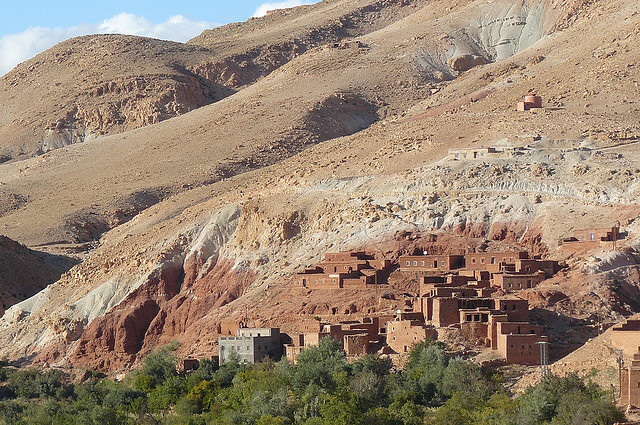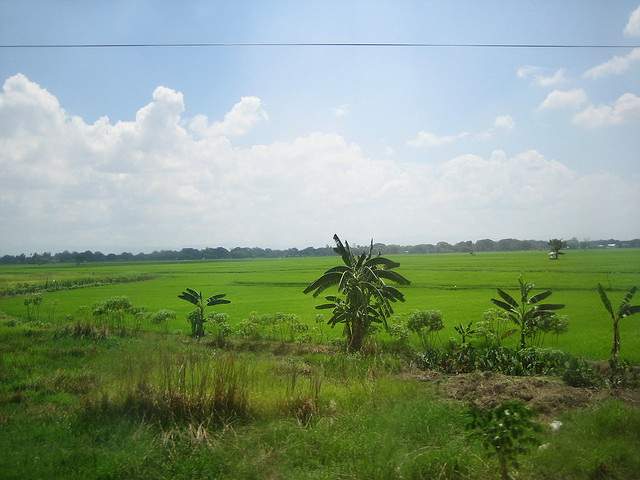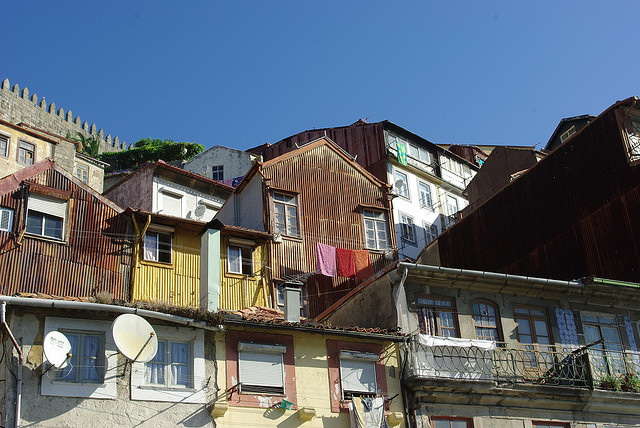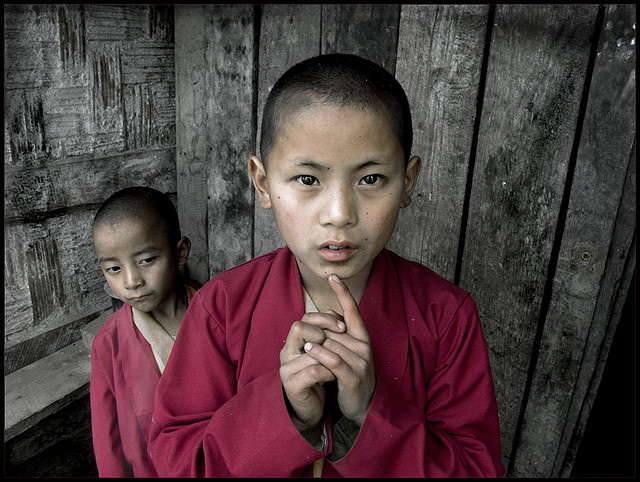How many times do you hear someone say something like “I want to see the REAL Brazil”, or “I’d love to visit the AUTHENTIC Spain”?
Perhaps you’ve heard people talking about their “amazing and AUTHENTIC experiences” and, like me, have had to bite your tongue and listen to the tales with a sickly smile plastered on your face.
It’s not the experiences, per se, that make me mad … I love sharing traveling tales and hearing about the many great places out there that I would love to visit one day. Rather, it is the choice of adjectives when describing travel that can really make my blood boil. Authentic travel is almost bandied around as a badge of honor; it is something to aspire to, it is the best way to see and understand a new place. If you don’t undertake some authentic travel, well, there’s not an awful lot of point!
Authentic: What does it mean?

Let’s stop for a moment and think about the meaning. Authentic, according to the dictionary definition, means “of disputed origin; genuine.”
That’s what authentic means – something genuine, reliable, not a copy.
Pause for a moment and ask yourself this question: how can travel be inauthentic? To put it another way, how can travel not be real? Perhaps it was all a dream. Perhaps the speaker imagined all the sights, sounds, smells, tastes, and feelings that all add to a travel experience. Is that likely?
Whether you are surrounded by thronging crowds on Khao San Road or in a remote and desolate spot in the mountains of Laos, it is still, by definition, authentic travel.
All travel by definition, therefore, is authentic. It is all REAL. Good and bad experiences, challenges and joys, the people you meet, the places you visit, all around the globe – they are all authentic. Whether you are surrounded by thronging crowds on Khao San Road or in a remote and desolate spot in the mountains of Laos, it is still, by definition, authentic travel.
I do understand what the authentic crew are trying to say. I get the ideas they are trying to convey. I know I’m arguing semantics, but I also think this particular choice of adjectives is poor.
What do people mean when they talk about authentic travel?

When travelers refer to authentic travel, they commonly mean that they have ventured away from the busy tourist areas and taken a journey through some off the beaten track places. They have seen different sides to a country, explored rural areas as well as big towns and cities, and have perhaps undertaken an adventure to some difficult to reach spot. The adventures usually involve an element of seeing how locals live, spending some time within the community, and gaining a greater understanding of the culture and traditions of the country in question.
For example, I met somebody in Thailand who regaled me with their tales of a weekend spent in authentic Thailand. They even met “real” Thais! They had had some great times for sure, and their weekend of riding through rice paddies, eating freshly picked bananas, drinking with locals in a tiny roadside watering hole, and encountering few people who could manage more than a cursory “hello” in English did sound fantastic, relaxing, and different.
They contrasted this authentic part of Thailand to the bright lights and frenetic traffic of Bangkok, the hustle and bustle of the beaches on Koh Phi Phi, the perfect English spoken in the spas and massage parlours of Koh Samui, and the long lines of tourists waiting to get into major popular attractions across the country.
It would be tempting to agree that this experience was, indeed, more authentic than those when one stays on the tried and trodden touristic path. Let’s think about it though: Is Bangkok not genuine? Is it an imposter in Thailand? Is Koh Samui a fraud, and Koh Phi Phi a dirty big fake?
Despite being filled with tourists, they are all still very real places within the country of Thailand. Each offers a different experience, but they are just as authentic as the rural rice paddies and banana crops. Consider this: Are the citizens of a country you meet more or less authentic depending upon where they live? Thai people live, work, and socialize in each place, although the extent to which you meet local people varies immensely. If I meet a Thai person in Sweden, are they an inauthentic Thai?! No? I didn’t think so.
This scenario can apply to any place in the whole entire world. Everywhere you travel is, indeed, authentic!
Authentic versus modernity

Unfortunately, authentic is also sometimes said when people actually mean poor. Expectations play a big part in this idea. If somebody visits a place with preconceived ideas of how a place will be, only to find that the reality is very different, they almost slavishly search out somewhere that does match their imagined state of the country. It may also be used to refer to places where the community still lives by old-fashioned and traditional values.
If you fall into this category of authentic travel seekers, it may be time to re-evaluate your expectations, cast off your stereotypes, and learn to enjoy travel for what it is, rather than seeking to fulfill your own notions and visions.
For example, if you are expecting areas of shanty housing, oxen ploughing the fields, and children flashing cute smiles in return for a handful of stationery, yet find neon lights, Starbucks, flash cars, and other modern trappings, you may feel slightly cheated. The reality does not match your expectation.
Modernization is reaching many areas and is improving many lives around the world. A modern outlook does not mean somewhere is inauthentic. If you fall into this category of authentic travel seekers, it may be time to re-evaluate your expectations, cast off your stereotypes, and learn to enjoy travel for what it is, rather than seeking to fulfill your own notions and visions.
Alternatives to authentic

Do you fall into the trap of referring to travel as authentic? Instead of trying to define a place as authentic, you can inspire people by bringing the destination alive. Say what you saw … Say what you did … Explain how you felt … Tell us who you met. Also describe how it was different than other places you have visited. But please don’t tell us it was authentic!
The next time you feel the “a” word rolling around on the tip of your tongue, try out some different vocabulary instead. Maybe you had a spiritual experience. Perhaps you visited a really secluded spot. Possibly, you have spent the past week living with a host family in the middle of the jungle, wearing nothing but a loin cloth, washing the blankets in the nearby babbling brook and spending each afternoon foraging for berries and leaves to cook on an open fire. You might have spent the night partying to rhythmic tunes whose words you could not understand and knocking back home brew without another foreign face in sight. Whatever you did – you don’t need to say it was authentic!
What is authentic?

There are situations, of course, in which authentic is a great description to use. A particular type of food, for example, can be authentic. To illustrate this point, personally, I love authentic Mexican food, but I really don’t like shabby imitations.
An authentic alpaca wool poncho is so much warmer in the Andes than a fake, synthetic version. Also, I would like to try an authentic Singapore Sling cocktail, and I would absolute love for someone to buy me a pair of authentic diamond earrings at some point on my travels!
We can use authentic when talking about things that could be imitated or fake, to show that they are, indeed, the real deal.
Travel, in itself, is not authentic. Similarly, it cannot be inauthentic. It is neither real nor fake … travel simply is! I hope this gives you food for thought and an opening to rethink the ways in which you describe your travel. Maybe now you can understand the forced smiles when you talk about your authentic travels and understand why myself, and many others, hate the word authentic when it comes to travel!
Read more about travel philosophies:
- One Life is Not Better Than Another
- Finding Pleasure in Simple Moments
- 10 Things I’ve Learned from Life and Travel
- The Indie Travel Manifesto
